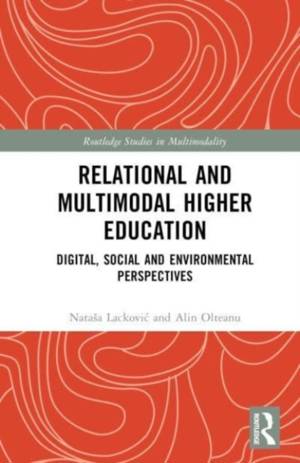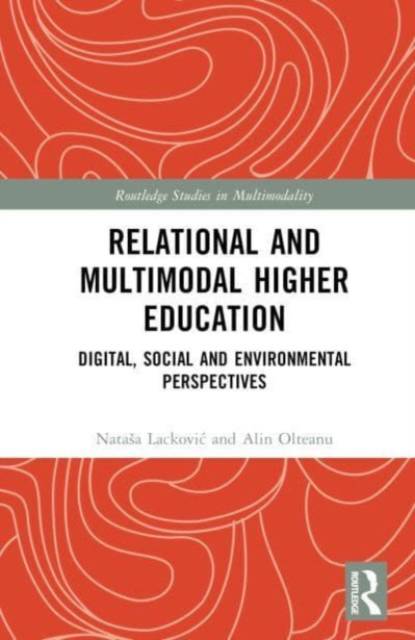
- Retrait gratuit dans votre magasin Club
- 7.000.000 titres dans notre catalogue
- Payer en toute sécurité
- Toujours un magasin près de chez vous
- Retrait gratuit dans votre magasin Club
- 7.000.0000 titres dans notre catalogue
- Payer en toute sécurité
- Toujours un magasin près de chez vous
Relational and Multimodal Higher Education
Digital, Social and Environmental Perspectives
Natasa Lackovic, Alin OlteanuDescription
This book proposes a relational turn in higher education by conceptualizing knowledge and pedagogy as relational and multimodal, analyzed through three dimensions of relationality: social, technological, and environmental.
The volume draws on interdisciplinary approaches that make a case for integrating these interconnected and distinct dimensions in higher education theory and practice. Its novelty lies in combining such a variety of perspectives with Peircean semiotics to explore what it means to learn and live relationally. It emphasizes the importance of critical reflection, rooted in an environmental understanding of knowledge and digital media. This approach integrates materiality, place, and space in higher education, positioning caring, critically reflective and imaginative interactions and interpretations as central for knowledge growth. The volume features practical case studies of relational pedagogy through dialogues with diverse higher education practitioners, which embrace expression and creation through more than one dominant modality of communication and being. The book envisions students and educators as relational agents, with relational awareness and responsibility, aware of their multimodal identities. It highlights how a relational multimodal paradigm can serve as a way forward for universities to address global challenges concerning social, (post)digital, and environmental futures.
This innovative book will be of interest to scholars, students, teachers, and policymakers in higher education, semiotics and multimodality, as well as postdigital, sociomaterial and futures studies.
Spécifications
Parties prenantes
- Auteur(s) :
- Editeur:
Contenu
- Nombre de pages :
- 344
- Langue:
- Anglais
- Collection :
Caractéristiques
- EAN:
- 9780367725365
- Date de parution :
- 29-09-23
- Format:
- Livre relié
- Format numérique:
- Genaaid
- Dimensions :
- 152 mm x 229 mm
- Poids :
- 639 g

Les avis
Nous publions uniquement les avis qui respectent les conditions requises. Consultez nos conditions pour les avis.






